In an opinion article, on January 13, 2024, titled The Audacity of Impunity, which reviewed the recent mindboggling revelation of corruption in the Ministry of Humanitarian Affairs and Poverty Alleviation under the suspended Minister, Dr. Betta Edu, Mr. Simon Kolawole contended that ‘because there was a widespread belief that President Bola Tinubu would run a corrupt, laissez-faire administration, some of his appointees decided to hit the ground running by spending public funds with impunity and audacity – and gleefully spitting on due process. There is corruption and there is impunity. And then, there is audacity. From the very beginning, we started hearing salacious stories, or allegations, of bags of dollars being dragged into and out of the offices of powerful government officials; lobbyists and aspiring political appointees spreading goodies around for “facilitation”; and undisguised sleaze in the 2024 budgetary process at every stage.’
Although Mr. Kolawole limited the scope of issues, he contended with, to the alleged corruption scandal in the Ministry of Humanitarian Affairs, it is important to note the implicit recognition of the ‘widespread belief that President Bola Tinubu would run a corrupt, laissez-faire administration’. These so-called ‘widespread belief’ have produced discomforting media reports within less than one year of the administration, which include damaging reports about how the Chief of Staff to the President, Hon. Femi Gbajabiamila was alleged to have traded government appointment to highest bidders. President Tinubu had to respond to this on Monday, October 30, 2024 when at the commencement of the weekly Federal Executive Council he declared “absolute confidence in the integrity of my Chief of Staff, Hon. Femi Gbajabiamila”. Given the gravity of the allegation, President Tinubu further declared ‘we’re all joining hands to fight corruption.’
Join our WhatsApp ChannelREAD ALSO: Edugate: Wale Edun Leads Tinubu’s Special Panel To Probe Social Investment Programmes
Most of the alleged reports of corruption in government could hardly be substantiated with evidence. But combinations of growing lack of trust by citizens against public officials and poor communications of government activities made the allegations of corruption against public officials popular. Unfortunately, coming at the beginning of the tenure of President Asiwaju Tinubu, makes virtually every initiative of the government to be enmeshed in corruption allegations. Recall the case of the N2 trillion supplementary budget and how allocation of N5 billion for Presidential Yacht became the subject of public debate. Other issues in the supplementary budget that attracted public debate include allocation of N7 billion for renovation of President’s and Vice President’s official residences in Lagos, additional N2.5 billion for the renovation of Aguda House, N1.5 billion for vehicles for First Lady, another N5.8 billion to replace operational pool vehicles. All these overshadow laudable initiatives such as N5 billion education loan scheme.
Around the same period when the N2 trillion supplementary budget proposal was being considered by the National Assembly, the issue of N160 million jeeps purchased for each legislator broke out. This meant total expenditure of N57.6 billion for House of Representatives and N15.8 billion for Senate. And the overall conclusions from all the public debate was that government and public officials were grossly insensitivity to the flight of Nigerians. The major problem, which strengthens all the public suspicion about corruption is that government communication remotely reflects the demands of citizens for improved living conditions, and to the extent of that alienate the government and political leaders. Communication then become passive, reactive and hardly projecting solutions to problems. For instance, when government proposed any budgetary allocation such as N5 billion for Presidential Yacht, or N7 billion for renovation of President’s and Vice President’s official residences in Lagos, or N5.8 billion for operational pool vehicle, etc., how would all those expenditures contribute to improving the lives of citizens?
With all the vast huge communication resources and networks at the disposal of especially federal government, why are public officials and government unable to manage public communication efficiently and admirably to spawn support and inspire mass appeal? Why should it be difficult to change passive and reactive communication to responsive, participatory, proactive and problem-solving communication? What is very remarkable is that the inability of communication managers both in government and at the party level to produce responsive, participatory, proactive and problem-solving communication is disastrously the source of opposition politicians strength. In so many respects, the popularity of political opposition to APC and its governments is hardly the case that the opposition is managing public communication differently. It is certainly not also the case that opposition is able to produce responsive, participatory, proactive and problem-solving communication. To the contrary, opposition’s communication is also passive, reactive and not able to project solutions to most of the problems bedeviling the nation, which APC and its governments are considered to be unable to achieve, if not the source of the problem.
Why should political communication be just about transmitting raw information in the form it is generated. Why shouldn’t communication of APC and the governments’ it produces be about citizens’ engagement? Given that APC is envisioned to be a progressive party, shouldn’t communication also serve as a means of getting feedback from citizens regarding policies, programmes, projects, actions, etc.? Methodological issues of getting feedbacks from citizens and how it contributes to shaping and reshaping government policies, programmes, projects, actions, etc. should provide the source for public confidence on the party and governments it controls. Once the source of public communication is remotely linked to broader section of society it will at best be a journalistic exercise, having expression only in pages of newspapers, radio and television programmes, and in contemporary times, in the social media handles of public commentators.
Accommodating the diverse interests of Nigerians is about representation and responsiveness, which is what is required to affirm that ‘sovereignty belongs to the people of Nigeria from whom government through the constitution derives all powers and authority’ and ‘participation by the people in their government shall be ensured in accordance with the provisions of the constitution as provided in section 14 (2) (a and c) of the 1999 Nigerian constitution as amended. Being able to mobilise Nigerians to support the initiatives of government is a function of engagements and negotiations with the aim of winning agreements that will strategically commit citizens to both support the initiatives of government as well as discharge complementary responsibilities. To be candid, this has been absent and has been the source of virtually most of the crises that were responsible for the collapse of all previous Republics in Nigeria. In many respects, this reflects poor relationship that exists between government and citizens, which often is taken for granted. If anything, part of the reasons why relations between government and citizens is most times tense is the absence of a functional framework to facilitate engagements and negotiations with Nigerians on policy issues. It all comes down to questions of representation and responsiveness.
Theoretically, representation and responsiveness are more about how different interests are accommodated and promoted in policies of government. Somehow, these are issues that are yet to be reflected in the ways political parties and governments at all levels are organised. None of the registered parties can claim to have developed structures that allow for caucusing such that blocs of interests can strategise within the structures of the political party on how to promote their own interests. None of our governments, including the current Federal Government led by President Asiwaju Tinubu can claim to be organically connected with any organised group of interest based on which its policies and programme initiates could be adjudged to be derivative or reflective of the demands of members of the groups.
Inability or failure to make governments representative and responsive such that policies and programmes of governments find their bearing from demands of citizens as represented by organised groups legitimises the belief about ‘widespread corruption’ and in many respects mobilises citizens against governments. Analysing factors responsible for the collapse of the Nigerian Second Republic, Prof. Richard A. Joseph, as far back as 1987 described it as prebendal politics, which reduces governments and the resources it manages to basically control by few public officials. Sadly, here we are in 2024, still stuck with the reality of having to contend with prebendal politics as the main orientation of democracy in Nigeria.
This is further complicated by the fact that, it would appear, prebendal politics has become more entrenched even under the APC, both during the eight-year tenure of former President Muhammadu Buhari and currently under President Asiwaju Tinubu. The whole allegations of corruption surrounding the Ministry of Humanitarian Affairs since its formation in 2019 demonstrate how under the APC problems of corruption were allowed to continue. This is heart breaking because one of the campaign promises of the APC in 2015 is war against corruption for which Nigerians invested their trust on the party and former President Buhari. In fact, part of the reasons for the mass support of Nigerians from the Northern part of the country for former President Buhari was the expectation that he will be ruthless in fighting corruption in the country. Largely based of his antecedent as a former military Head of State between January 1984 and August 1985, who overthrew the Second Republic, arrested, tried, and sentenced many politicians to prison terms, many supporters of former President Buhari expected that he will handle the fight against corruption in the same way he did when he was military Head of State.
As it turned out, those expectations were not met. Although, there were flashes of attempts to fight corruption during the tenure of former President Buhari, however, it was not able to change the orientation of politics away from being prebendal. If anything, prebendal politics took over the APC and many public officials produced by the APC also became guilty of converting public resources to private use. Recall how the Economic and Financial Crimes Commission (EFCC) was reported to have seized N19.3 billion salary bail out given to Kogi State by the Federal Government, which was deposited in an unlawful bank account domiciled with Sterling Bank Plc in November 2021. This is a State controlled by the APC. There are other similarly damaging allegations of how some APC controlled states were unable to pay salaries of workers.
All these confirms Prof. Richard Joseph seminal description of prebendal politics in Nigeria as a system, which ‘enables divergent groups and constituencies to seek to accommodate their interests. At the level of the individual, it is a pattern of social behavior that is quickly learned and accepted. It would be more comforting to say that it works because it is efficient, and that it is a rational and productive method of minimizing social costs and maximizing benefits. Unfortunately, such claims cannot be made: the system permits although it seldom satisfies such criteria. It is often wasteful, unproductive, and contributes to the increasing affluence of a relative few, paltry gains for a larger number, and misery for the great majority of the people.’
Debate about social costs and benefits regarding public policy choices of APC governments, for whatever it is worth can go on. However, so long as indices of poverty, cost of living and welfare conditions of citizens remain below acceptable thresholds, public expenditure would be heavily suggestive of waste, low productivity, increasing affluence of public officials, ‘paltry gains’ for citizens and ‘misery for the greater majority’ of Nigerians. It is painful to admit that the APC has ‘quickly learned and accepted’ prebendal politics and ‘it would be more comforting to say that it’ is working efficiently for some APC leaders in government. Part of the evidence of working efficiently produces the outcome whereby ‘some …appointees’ of President Asiwaju Tinubu ‘decided to hit the ground running by spending public funds with impunity and audacity – and gleefully spitting on due process’ as highlighted by Mr. Kolawole.
READ ALSO: APC And Struggle For New Nigeria
The big consolation is that President Asiwaju Tinubu has decisively intervened, first with the suspension of the Minister, Dr. Betta Edu, then followed by suspending implementation of all social investment programmes and full-scale investigation of activities of the Ministry of Humanitarian Affairs. Will these produce a new beginning in the fight against corruption in the country? Or will it be another moonlighting providing escape routes for all those accused of corruption with another inconclusive outcome? Above all, will President Asiwaju Tinubu use the opportunity of this investigation to introduce deeper political reform in the country such that the orientation of APC begins to shift away from prebendal politics? Will such shift take APC back to its founding vision of becoming a progressive party based on which the party and all its organs are strengthened to not only become functional but also develop the capacity to regulate the conduct of public officials it produces?
Inability to regulate the conduct of public officials by political parties is at the root of the problem facing democracy in Nigeria, which strengthen prebendal politics. As loyal members of APC, the disposition will be to confidently engage both President Asiwaju Tinubu and all leaders of the party so that new chapter in the fight against corruption is opened, such that APC and all its organs are activated to be functional and strengthened to regulate the conducts of all public officials. However, it is important to moderate our expectations with the reality that once President Asiwaju Tinubu’s initiatives do not include developing corresponding relationships with organised groups in the country, based on which engagements and negotiations on policy measures and their outcomes are made possible, inclination towards prebendal politics will remain high in the country. Unfortunately, also given that President Asiwaju Tinubu is more disposed to be accessed by politicians whose mission is limited to being prebendal, discourages any strong expectation for deeper political reform in the country under President Asiwaju Tinubu.
Given such discouraging prospect, what is the future of democracy in Nigeria? Even with such ugly prospect, APC leaders must rise to the occasion and remain resolute in engaging President Asiwaju Tinubu and all APC leaders to return APC to its founding vision of being a functionally progressive party, based on which it is able to develop the needed capacity to regulate the conducts of public officials it produces. To be able to achieve that would require a change in the way party leaders relate with President Asiwaju Tinubu. A situation whereby disposition of party leaders towards the President is limited to issues of accessing opportunities in government would only strengthen prebendal politics and weaken initiatives towards returning the APC to its founding vision of becoming a progressive party.
Once prebendal politics remain strong and initiatives towards making the APC becoming a progressive party are weak, the fight against corruption in the country will be weak. APC leaders must rise to this challenge and provide the required support to ensure that Nigerian democracy overcome its prebendal orientation to become both responsive and representative of the wider interests of Nigerians. As a party, APC must turn a new leaf in Nigerian democracy by doing everything necessary to ensure that the government of President Asiwaju Tinubu succeed. Nigerian politics must be about meeting the expectations of citizens based on which elected leaders make every sacrifice to justify the votes of Nigerians!
May Allah (SWT) guide President Asiwaju Tinubu and APC leaders to initiate deeper political reforms in the country to end prebendal politics, which promote corruption and converts public resources to private use by political leaders and public officials. Amen!!!
Salihu Moh. Lukman former APC national Vice Chairman (north west) writes from Kaduna

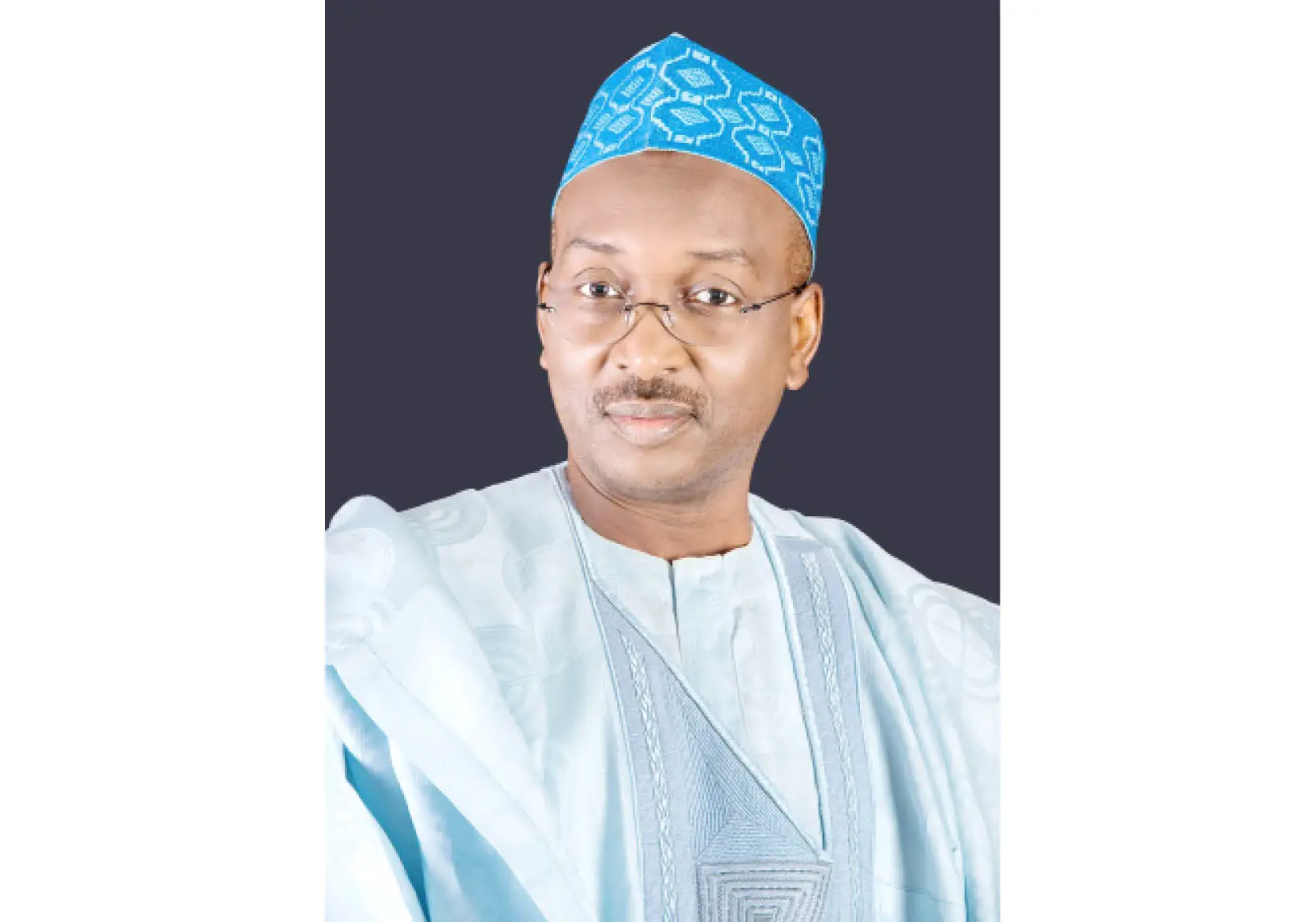


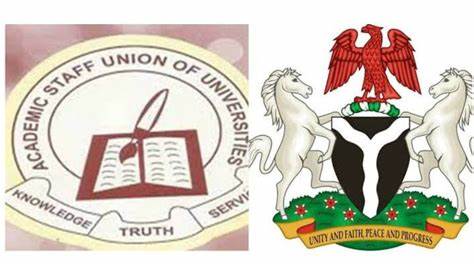
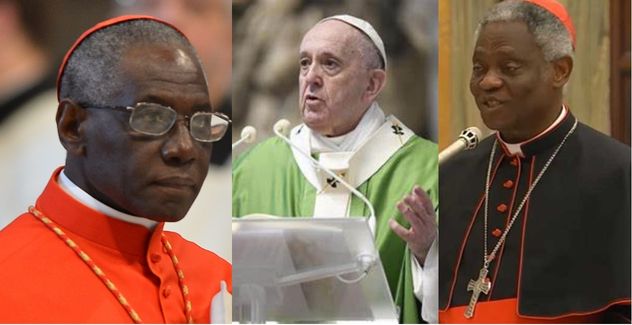
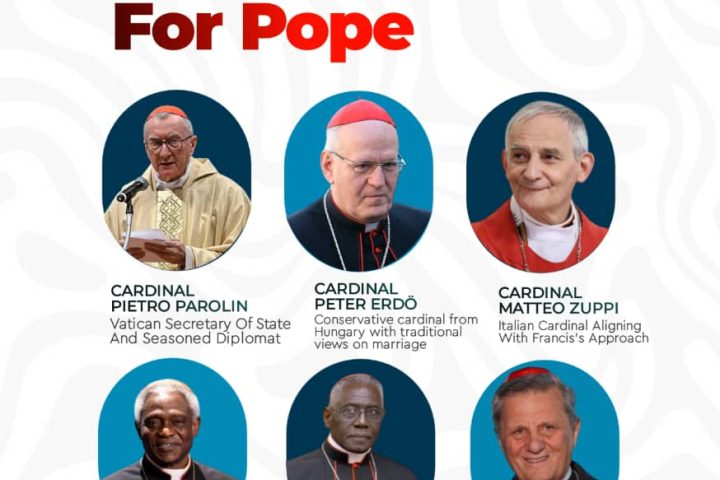





![Trump, Zelenskyy Discuss Peace Plans During Pope Francis’ Funeral In Rome [VIDEO]](https://www.primebusiness.africa/wp-content/uploads/2025/04/Trump-and-Zelenksy-meet-at-Pope-Francis-Burial-150x150.jpeg)


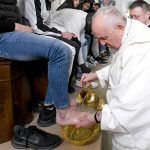
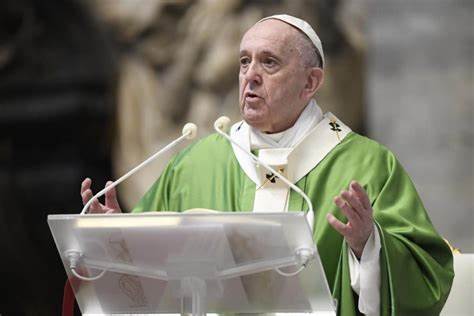
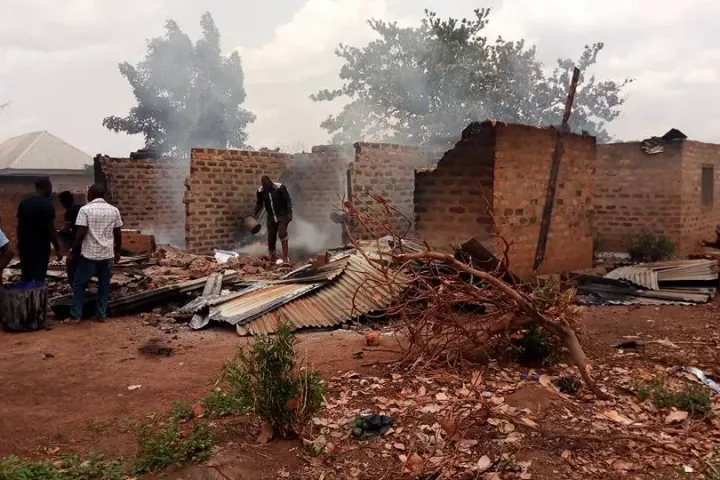
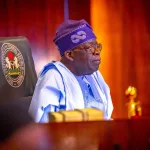
Follow Us